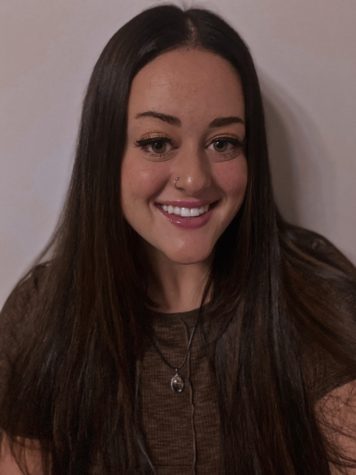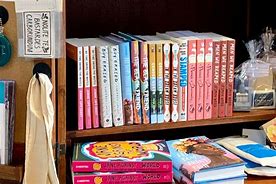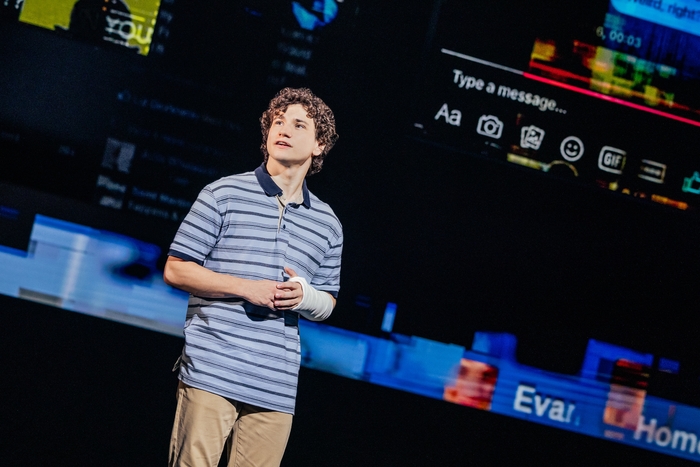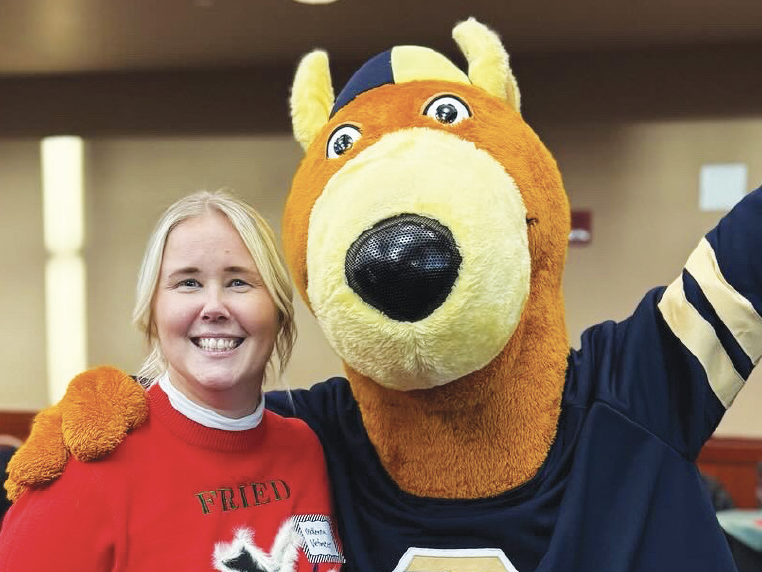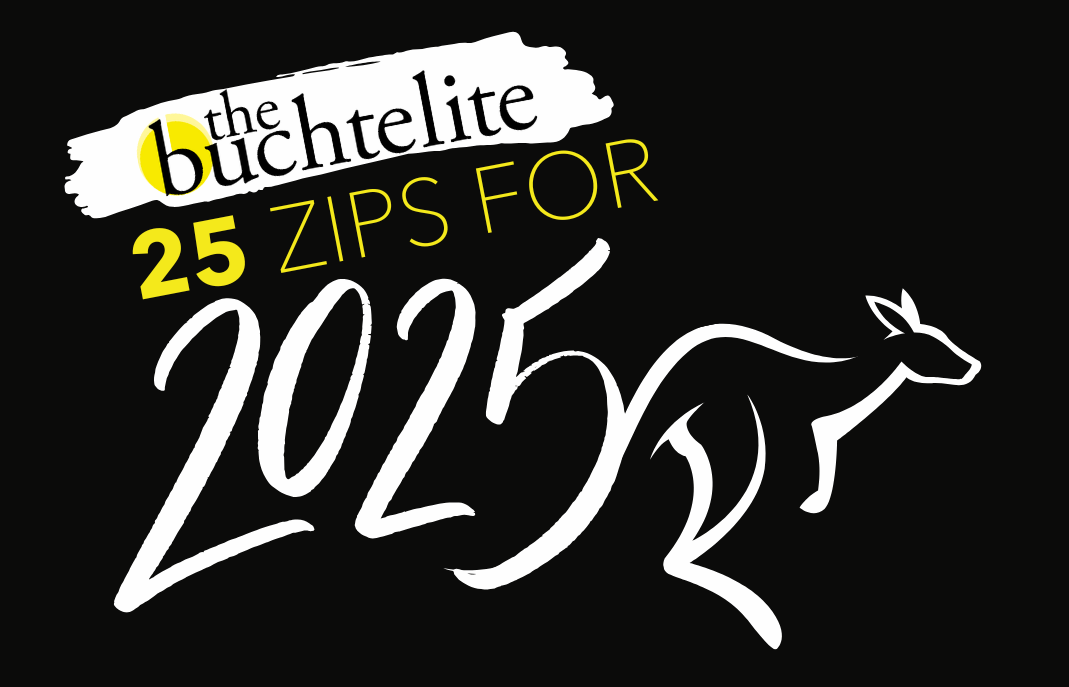Opinion: I’m still getting my “Sh*t Together” (and that’s okay)
My pre-graduation existential crises.
May 6, 2023
(Part II of this story available here).
I will graduate on May 6. Considering that it’s this weekend, you might assume I’m on cloud nine.
Many of my peers appear to be. They look and seem ecstatic in both graduation pictures and in their social media statuses. Graduating college is an accomplishment to commemorate, and I am very proud of my peers.
But I’ve found myself wondering: why do I struggle to celebrate my own accomplishments?
Being able to see the good in myself that I see in others has always been something I’ve struggled with. I’m an optimist who holds a generally positive outlook on the world and have immense hope for the future, but when it comes to how I see myself, my brain likes to dwell on perceived flaws.
Throughout my life, even in times of success, I’ve hardly felt pride or excitement for myself. Instead, I just feel relief when something I stressed about is finally over, which is quickly replaced with anxiety over my next tasks.
An intrusive thought that’s been looping in my brain for quite some time now is, “On to the next. It’s always something.”
When I was growing up, I heard adults utter this phrase many times, and I never quite understood it as a child. Now that I’m in my 20s and transitioning into adulthood, I realize what they meant.
Getting your sh*t together is really hard.
I grew up an angsty teenager that turned to negative forms of coping. I appeared to be fine and having the time of my life, but deep down I knew the people and situations I hung around were only doing me more harm.
It wasn’t until 2019, my sophomore year of college, that I was able to fully release myself from the shackles of self-sabotaging coping mechanisms. It wasn’t as easy as it sounds though. It took a lot of panic attacks and nights of me feeling and doing my absolute worst to finally see the light.
I knew I wanted a life that felt worth living. At first, it was hard to accept that it wasn’t going to be found at the bottom of empty liquor bottles or with the people who stayed up until noon the next day helping me finish them.
I got away from toxic environments and started taking school seriously.
Through learning about the complexity of the world and having numerous enlightening experiences in and out of school, I was getting closer to grabbing the bull by the horns. Facing my troubles by diving deep into myself was the only way forward.
Up until my sophomore year awakening, partying and numbing the pain was part of my identity. It’s what I had been doing for so long that it became all I knew.
I didn’t realize how lost I truly was, or how lonely I’d feel while trying to heal. I no longer spoke to 90% of the people I usually would: those that I partied with. This was the start of my first existential crisis.
On top of that, I was also experiencing the typical changes one encounters growing up. Chapters in life closing, social circles and family dynamics changing, and switching roles from dependent to independent all surfaced simultaneously.
My world view, aspirations, opinions and identities were also changing. Throw in the 2020 pandemic as the cherry on top, and you have the perfect concoction for a breakdown.
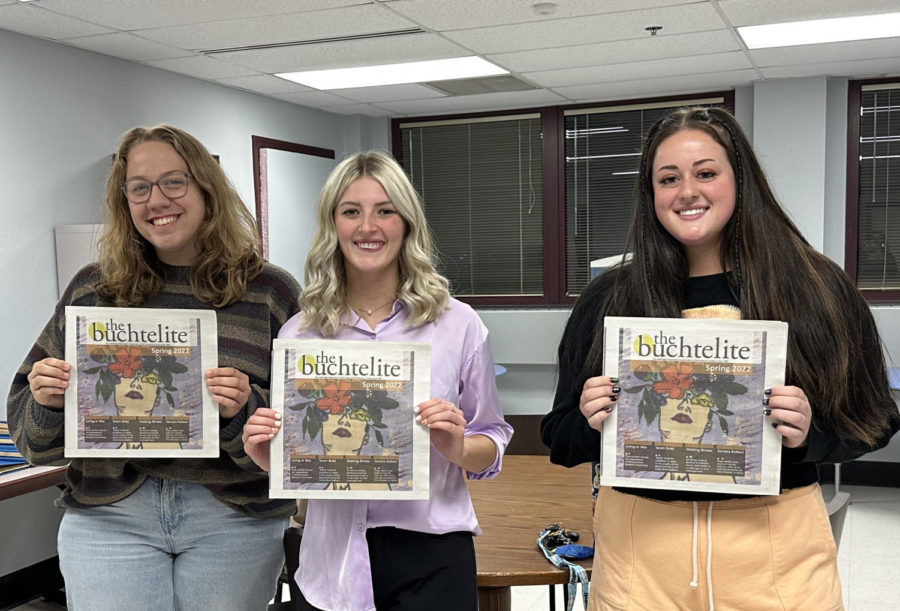
I knew I had to be diligent in sticking to the boundaries I’d begun constructing, I so badly wanted to turn my life around.
My saving grace became participating in school more than I ever have in order to keep my mind busy. I didn’t just show up to lectures anymore, I had an intention to learn as much as I possibly could about myself and the universe. My courses in the Buchtel College of Arts and Sciences helped me see the complexity of society and in return understand myself more.
I no longer viewed myself solely as broken. I began to perceive myself as a complex system like the world is. Bad things and troubling times still occur, but neither I nor society can be completely defined in the present by our past. There is still hope to be had and blessings to be thankful for even amidst chaos.
I kept myself very isolated during this time but continued to build up my confidence and focus on school. Even though there were times I wanted to give up on bettering myself, I kept trying.
Flash forward to entering my senior year in 2022. I was no longer looking at things from a black-and-white, good-or-bad perspective. I had a firm grasp on my ability to recognize my own triggers and redirect my thoughts. I began journaling, practicing breathing exercises, and making friends with peers who were good for me, instead of always intentionally disassociating from life.
September 2022, I decided to attend The University of Akron’s Recent Grad Panel, where one of my friends suggested I join The Buchtelite and PRSSA.
I wanted to become more involved on campus, I just wasn’t confident enough until this point. This time was different, though, I felt comfortable being around the other attendees of the panel. Multiple students already in The Buchtelite, and advisor, professor Julie Cajigas, were present. All of them encouraged me to join both organizations.
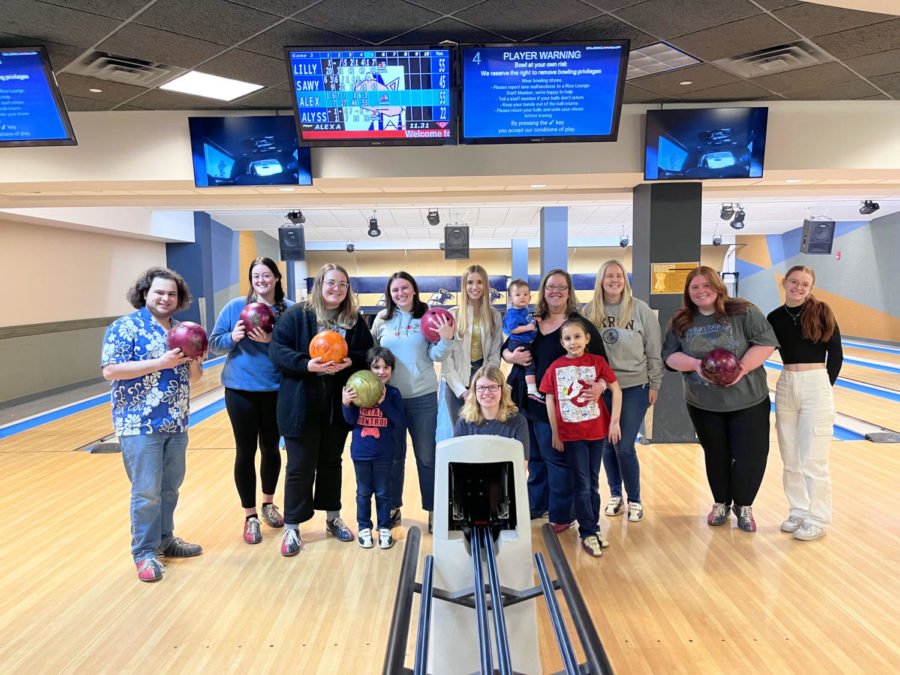
I didn’t realize at the time just how influential these organizations would be for me. My peers and professor Cajigas made me feel like I finally had somewhere safe that I belong.
I always hoped to find an outlet that not only brings joy but does it through beneficial actions. Through The Buchtelite and PRSSA, we’ve been able highlight student voices, raise awareness of impactful stories around campus, and even travel to Chicago this spring 2023 semester. The trip alone taught me a lot about myself, especially after listening to a panel about Diversity, Equity and Inclusion.
Everything we’ve done together in The Buchtelite and PRSSA has helped me grow as a person in ways I wouldn’t have had I not challenged my anxiety by joining in the first place.
Simply putting myself out there has led to drastic, positive change in my life. So much so that I barely recognize who I was before.
As sweet as it sounds, this experience has also been bitter. Change isn’t always comfortable, even when it’s for the better. The more I grew away from the old version of me, and the more I dove into the depths of myself, I began to realize that finding yourself is a lifelong process. As someone who overthinks, overanalyzes, and stresses a lot, this can be a terrifying epiphany. I had a false belief that one day I’d wake up and have everything figured out.
I always envisioned scenarios of what my life could look like after I graduate, but I really began romanticizing life after college within my last few semesters.
I pictured for myself what I described in my peers earlier: bliss and joyous celebration. Don’t get me wrong, I do feel excited to complete such an intense journey. I recognize that I’m successfully moving past a milestone in my life., I just wish that was the prevailing emotion in my body.
It’s not easy when your own brain is your biggest enemy. I’ve had to fight against my mind many times to get where I am now. I don’t know why I expected graduation, a giant transition, to be any less anxiety-inducing the closer it came.
I’ve found myself the past two weeks in the midst of another existential crisis. Part of me feels like a computer with way too many tabs open that’s starting to crash. Simultaneously, I also feel like a baby bird on top of a cliff, where I’m being pushed out of my nest even though I’m not sure if I can fly yet.
I thought I’d know exactly who I am by the time my graduation date came. It’s true that I know myself more than I ever have; I’m in tune with my mind and body. I’ve also defined my values, whereas before I didn’t even know what I cared about. Yet, at the same time, I’ve never felt so unsure of what’s in store for me, or who I’d like to be in five months let alone five years from now.
Reflecting on my personal struggles, triumphs, and overall journey for this article though, has led me to a couple realizations.
First, I’ve never had all the answers I seek, yet I’ve always made it through my worst of days. Even though it seems scarier, graduating is just like all those other times I was afraid of the unknown. I prevailed through those transitions, so why am I selling myself short by freaking myself out that I won’t be able to fly?
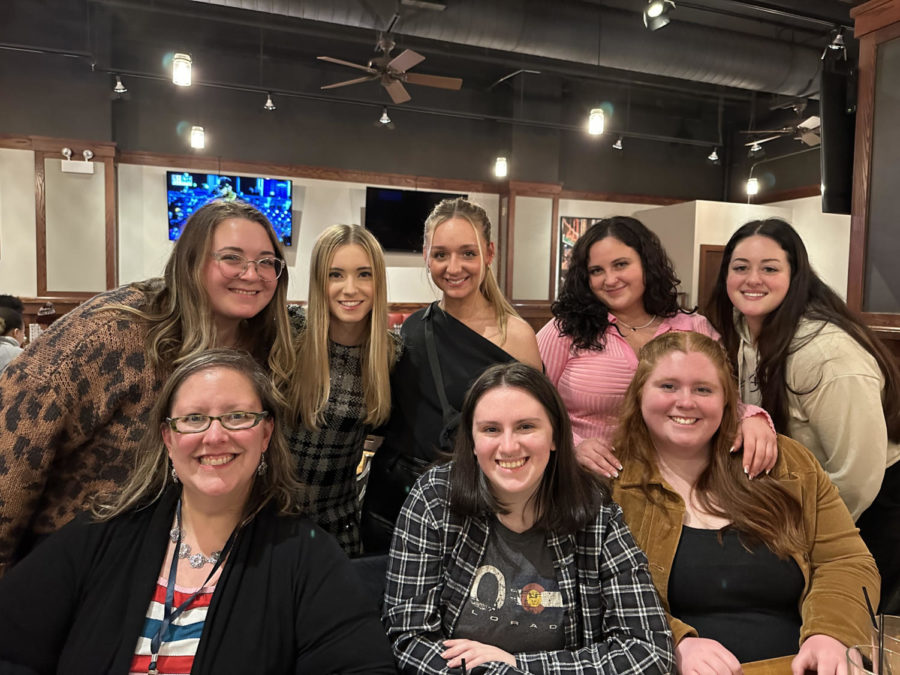
Second, opportunities come from simply trusting yourself and trying out what you’re afraid of. If you have positive intentions and take proactive steps to heal, you will figure out more about yourself and what environments you want to be a part of. Different opportunities and directions will appear, but not if you don’t take the initial first step.
This is what I must do with graduation. Had I let my “am I even good enough?” fears win in fall 2022, I wouldn’t have joined The Buchtelite or PRSSA. I wouldn’t have had the opportunities for advancement through participation in things I’m passionate about. I also wouldn’t have gained a close relationship with professor Cajigas, who has been instrumental in helping me through my mental battles and evolution.
It was her suggestion that led me to writing this article in the first place.
I’ve been trying to fight my battles alone for a long time, but I reached a point where I couldn’t hold the emotions in anymore. I opened up to Professor Cajigas about feeling low at a time when I should be the happiest and how, as well as that it’s affecting my ability to connect with writing.
She offered me much-needed support and a listening ear, and eventually put me in contact with Dr. Robert Schwartz, Associate Dean and Professor in the College of Health and Human Sciences.
I felt immense relief after just one half-hour conversation with him. As a professor in the School of Counseling as well, he was able to offer professional insight into my feelings. I found out that I’m not alone in grieving during a seemingly joyous time.
After we ended our Teams meeting, my value of wanting to help others became stronger.
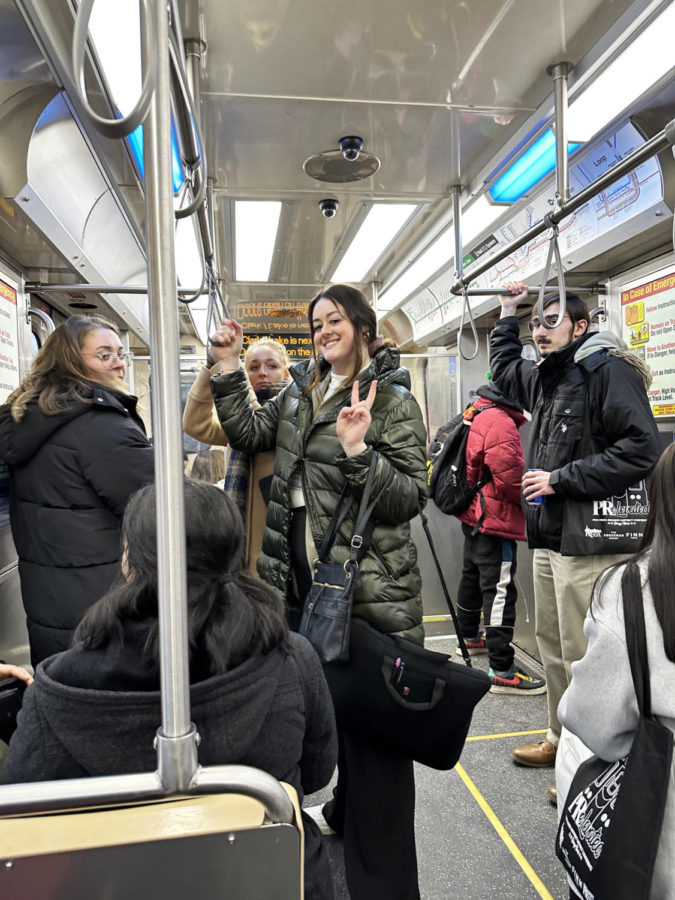
Sometimes all a person needs is validation that they aren’t alone in feeling how they do; there must be other students out there going through an existential crisis like I am. I want them to know that they are not alone.
I might not possess clear answers about the future, but I do know I’ve made it through situations in the past that terrified me. I believe now that graduation will be the same, and I share this same faith for other students who may be struggling to see the light.
Vulnerability in my writing is one of the best ways I know how to convey hope to people. By opening up about my personal journey in this two-part piece, I hope I can spark a fire in any students who have been feeling dim.
Part two of this series will focus on Dr. Robert Schwartz’s perspective on depression and anxiety, UA’s mental health services, and advice for students that may be going through a tough time.
But, to close part one, I do have some advice of my own.
To the students who find themselves feeling anxious, depressed or disgruntled—keep going. No matter how cliché it sounds, you must put one foot in front of the other and move forward. You absolutely have the power to be the one defining yourself—don’t let others around you be the ones doing it.
If you see a beneficial direction opening in your life, take that path and just try. The worst that could happen is you realize another direction is better and you can switch paths if need be.
Without that initial leap, you wouldn’t have found what works better for you. Doing this over and over is how you really find yourself. Believe in your skills, accept that your feelings are valid and never be afraid to open up to a trusted source.


